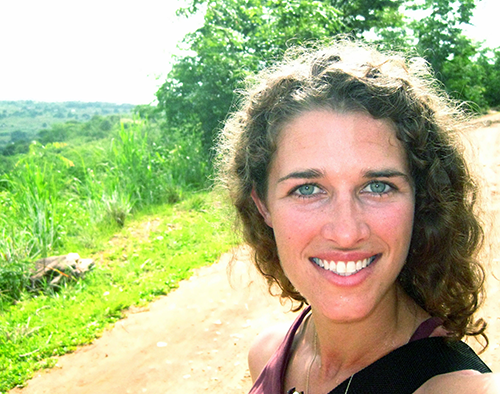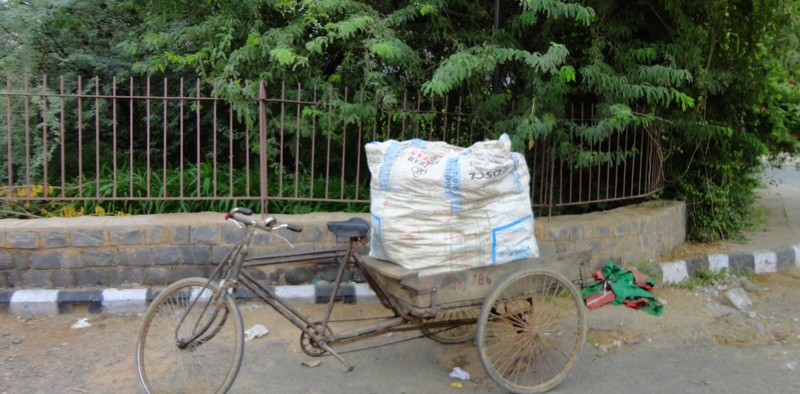Where there are still rickshaws, made of wood and dragged down the road by barefoot, destitute men.
My first 24 hours here have left me overwhelmingly sad. The glimmers of hope – Mother Theresa’s work, living on in her well-staffed orphanages; demonstrations advocating for special education – do little to counter the ubiquitous reality of poverty, oppression and hopelessness among the city’s massive underclass. The city’s rotting buildings hint at an opulent past. Now the streets are strewn with uncollected trash and droves of homeless families
I didn’t take any photos of abject misery (small children pooing in open gutters), because I don’t know how that kind of imagery will help anyone. I’m not here working on poverty in Kolkata anyway. Kolkata was a brief stop between hobnobbing with bigwigs in Delhi (India’s post-independence capital and home of its tall, sleek buildings and tremendous intellectual powerhouses) and the dam-builders in Shimla (the capital of Himachal Pradesh, home-state of the Dalai Lama in exile).
The point was to get the world’s largest tea producer, McLeod Russel (you’ve never heard of them, because they never package or blend their own teas), to let Nomogaia assess a tea estate in Uganda. They haven’t totally said yes, just yet, but they’re getting closer.
Manager: “Why don’t you just ask for money? Say ‘this is a gap analysis, and I want x amount of money to do it for you.”
Me: “Well, the point isn’t to sell you a study, it’s to research the human rights impacts of your project so that we can learn whether our assessment tool works.”
Manager: “How am I supposed to explain that to the board?”
Image attached is a bit of a joke, since Indian cities are considered more polluted than Beijing, but less well monitored.

Author: Kendyl Salcito, executive director, NomoGaia
Kendyl Salcito developed her expertise in human rights and business as a foreign reporter in Southeast Asia and North America. She has advised industry groups on corporate human rights performance and contributed to the development of the UN’s Guidance Principles for Human Rights and Business.


